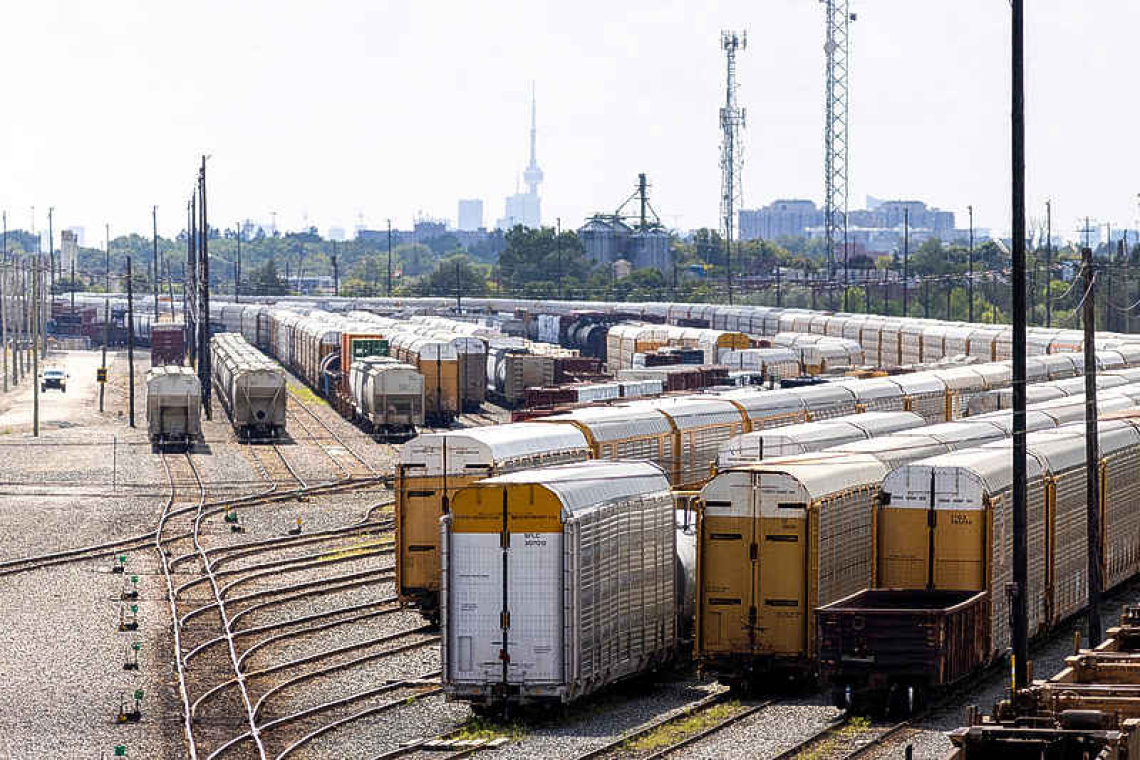OTTAWA--The Canadian government moved quickly on Thursday to end an unprecedented rail stoppage, announcing it would ask the country's industrial relations board to issue a back-to-work order that should come soon.
Canada's top two railroads, Canadian National Railway and Canadian Pacific Kansas City, had locked out more than 9,000 unionized workers earlier in the day, triggering a simultaneous rail stoppage that business groups said could inflict hundreds of millions of dollars in economic damage. The Canadian Industrial Relations Board (CIRB), which is independent, will now consult the companies and unions before issuing an order.
CN said it would end its lockout on Thursday at 6 p.m. ET. CPKC said it was preparing to restart operations in Canada and further details on timing would be provided once it received the CIRB's order.
"I assume that the trains will be running within days," Labour Minister Steven MacKinnon told reporters.
As well as requesting a back-to-work order, MacKinnon asked the board to start a process of binding arbitration between the Teamsters union and the companies, and extend the terms of the current labour agreements until new agreements have been signed.
The sides blamed each other for the stoppage after multiple rounds of talks failed to yield a deal. The Teamsters union said in a statement that picket lines would remain in place while it reviewed MacKinnon's referral and CIRB's response. The union will consult with legal counsel to determine the next steps, it added.
CN spokesperson Jonathan Abecassis told the Canadian Broadcasting Corp it could take the company a week or more to catch up on shipments.
MacKinnon's decision marked a change of mind by the Liberal government of Prime Minister Justin Trudeau, which had said it wanted to see the matter settled at the bargaining table. "We gave negotiations every possible opportunity to succeed ... but we have an impasse here," MacKinnon said. "And that is why we have come to this decision today."
Business groups and companies had demanded the government act. Trudeau, in a post on X, said "collective bargaining is always the best way forward," but added governments must act when faced with serious consequences to supply chains and the workers who depend on them.
Canada is the world's second-largest country by area and relies heavily on railways to transport a wide range of commodities and industrial goods. Its economy is heavily integrated with that of the United States, meaning a stoppage would roil North American supply chains.
"We are pleased the government has responded to our calls to intervene ... A prolonged stoppage would have imposed enormous costs on Canadian business," the Canadian Manufacturers & Exporters, an industry group, said in a statement.
The rail companies previously said they were forced into the lockouts to avoid strikes at short notice. They said they had bargained in good faith and made multiple offers with better pay and working conditions.







